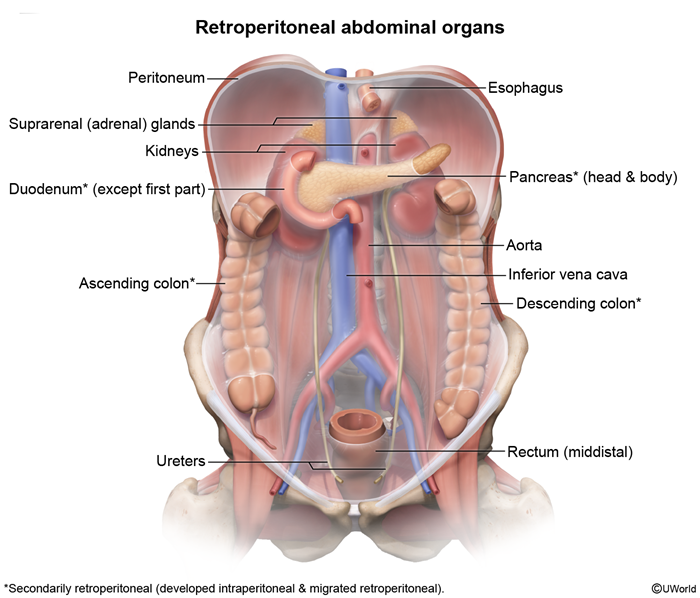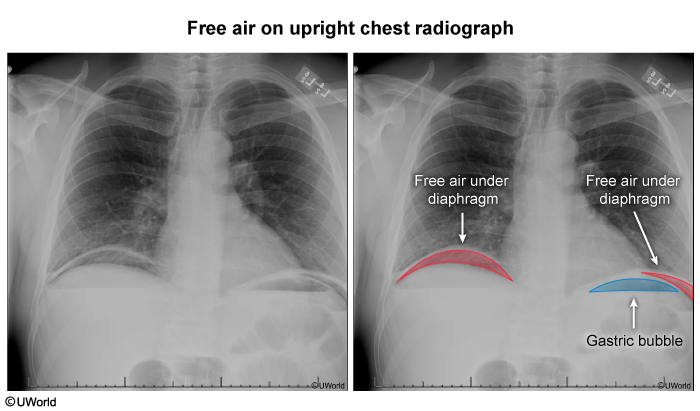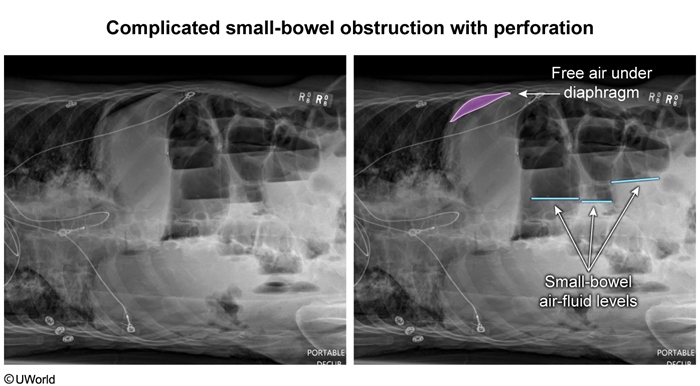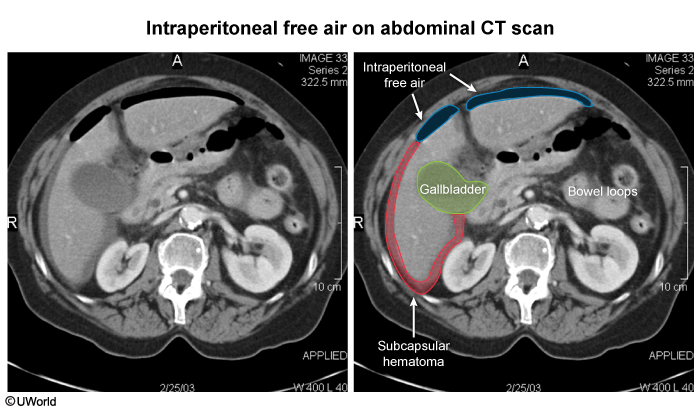Viscus Perforation
Article Sections
Introduction
Viscus perforation refers to a full-thickness injury involving the wall of a hollow organ (eg, stomach, intestine, colon), resulting in the leakage of luminal contents (eg, air, fluids, feces) into the normally sterile peritoneal cavity. This contamination leads to chemical and bacterial peritonitis, which can rapidly progress to sepsis and death if not promptly treated. Patients typically have sudden-onset, severe abdominal pain and signs of peritonitis (eg, guarding, rebound tenderness).
Pathogenesis and risk factors
Perforation of a hollow viscus requires a full-thickness breach in the organ wall. It can happen anywhere along the gastrointestinal (or female reproductive) tract. Causative factors may include:
Erosion of the wall- Peptic ulcer disease (PUD): Acid erodes the mucosa, leading to a transmural ulceration and eventual perforation. PUD is often related to
Continue Learning with UWorld
Get the full Viscus Perforation article plus rich visuals, real-world cases, and in-depth insights from medical experts, all available through the UWorld Medical Library.
Unlock Full AccessFigures

Images


